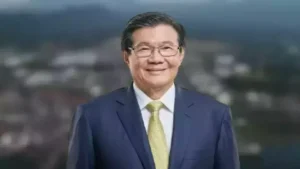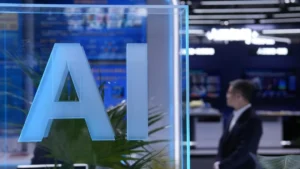The Department of Justice (DOJ) is set to defend its use of diversity, equity, and inclusion (DEI) policies in federal court this week as part of an ongoing plea agreement involving aerospace giant Boeing Co. The DOJ’s longstanding policy of considering diversity factors when appointing corporate monitors has unexpectedly come under scrutiny from U.S. District Judge Reed O’Connor in Texas. This legal challenge could postpone Boeing’s anticipated resolution of criminal charges related to two devastating crashes involving its 737 MAX aircraft, which killed 346 passengers and crew in 2018 and 2019.
The DOJ has until Friday to justify its inclusion of DEI criteria in the monitor selection process for Boeing’s plea deal, as per Judge O’Connor’s directive. This requirement is unusual for a corporate plea arrangement and signals that the DOJ’s application of DEI policies could be on trial as much as the agreement itself. The Justice Department has used similar DEI-based language in criminal settlements since at least 2018, yet its appearance in the Boeing plea deal has become a focal point in this Texas courtroom. Judge O’Connor’s insistence on a detailed explanation suggests that the department’s diversity policy could face unprecedented judicial pushback.
For Boeing, resolving the case efficiently is crucial. The company has publicly pledged significant compliance and safety reforms over the next three years under the supervision of an independent monitor—a key term of its plea deal with the DOJ. This monitor’s role is critical, as it signals Boeing’s commitment to rectifying past mistakes while preventing future tragedies. The aircraft manufacturer is eager to secure this agreement so it can address internal challenges, overcome reputational damage, and resume full focus on long-term recovery.
Judge O’Connor’s resistance to DEI considerations in the plea deal, however, threatens to delay Boeing’s efforts, particularly if the case extends into a prolonged debate over DEI policies. The issue surfaced in an October 11 hearing, during which Judge O’Connor questioned DOJ prosecutor Sean Tonolli about the inclusion of DEI criteria. He specifically asked how diversity factors into the monitor selection process and expressed concern that it might prioritize demographics over qualifications. Tonolli attempted to clarify, stating that DEI policies do not compromise professional standards or qualifications. But the judge’s continued questioning underscored his skepticism of DEI’s role, particularly within federal oversight.
This case is far from Judge O’Connor’s first engagement with politically divisive policies. Appointed in 2007 by President George W. Bush, O’Connor has developed a reputation for challenging legislation and policies that intersect with identity issues and equal rights protections, particularly those implemented by Democratic administrations. His rulings have previously invalidated portions of the Affordable Care Act and temporarily blocked federal guidelines protecting transgender students’ rights in schools, underscoring his influential stance on issues of individual rights and institutional policy.
Should Judge O’Connor ultimately reject the DOJ’s use of DEI criteria in this case, the consequences could reverberate widely. This ruling may potentially limit the DOJ’s discretion in future corporate monitoring agreements, shifting how DEI is integrated into federal enforcement standards. Beyond Boeing’s immediate concerns, the ruling could affect other companies under federal oversight, especially those currently operating in DEI-driven compliance frameworks.
For now, Boeing and the DOJ are awaiting the judge’s decision, one that could either allow the company to move forward with its reform agenda or plunge it into further litigation. The stakes are high: Boeing’s public image, regulatory relationships, and operational progress hang in the balance. Likewise, the DOJ’s defense of DEI policies may set the stage for a judicial interpretation that could redefine federal accountability measures across sectors. As Friday’s deadline looms, all eyes remain fixed on this pivotal courtroom exchange.










